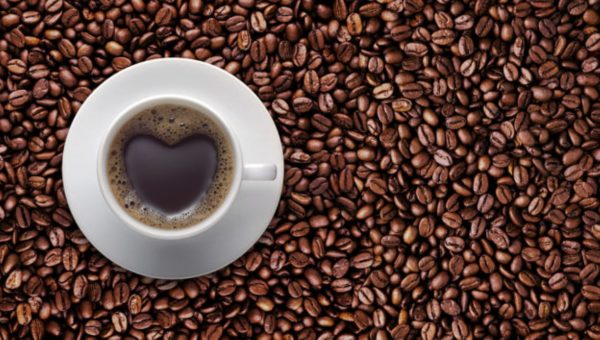What’s the deal with the high amounts of caffeine in coffee? Is it good for you, or is it bad for you?
The consensus is not cut and dried, and I will explain why in a moment.
First, let me share some of the great things that can happen when you drink a cup or two of coffee each day.
At the top of the list, it helps with the brain. Caffeine makes it work more efficiently. That’s why you feel so much more alert after you’ve had your first cup of coffee in the morning. And it activates several areas of the brain that can make it easier to learn and process stored memories.
Additionally, if you have your coffee at a certain time before you engage in physical activity, you’re going to burn more fat. The caffeine makes your adrenal glands work a little bit harder. It makes your metabolic rate go up a little bit. All of this increases fat-burning and maximum oxygen utilization.
Plus, it’s great for your liver function. One or two cups of coffee a day lower levels of liver enzymes AST (aspartate aminotransferase), ALT (alanine aminotransferase) and other enzymes associated with fatty liver disease, both alcoholic and non-alcoholic. Low intake of coffee results in higher enzyme levels.
So there are plenty of upsides to coffee consumption.
On the other hand, there are a couple of issues that concern me.
The Double-Edged Sword
Every person is different. And those differences may affect whether you should be drinking coffee or not. For example:
What’s your cardiac status? If you have high blood pressure or known arrythmias or atrial fibrillation, caffeine could trigger it. If you haven’t been drinking coffee for a while – or been drinking decaf – and suddenly get two cups of fully caffeinated coffee, it could trigger a dire event. So you want to be more careful depending on your cardiac status.
Does coffee make you anxious, jittery and irritable so that you snap at your partner or spouse when you drink it? If so, you might be drinking too much of it. Coffee overload. It’s better to scale back so you get coffee’s benefits without the side effects that come with overconsumption of it.
Do you have an issue that you can’t sleep at night? If you do, you shouldn’t be drinking coffee after two in the afternoon because of the amount of time it will take to metabolize. It delays the production of melatonin, the hormone that helps us sleep.
And here’s another thing. If you suddenly decide to stop drinking caffeinated coffee after long-term use, you could experience withdrawal symptoms; headaches, lethargy, nausea, irritability, jitters and so on. It’s best to slowly reduce your consumption over time.
In other words, it is never one thing that works exactly the same way for everyone. You have to make decisions based on your own health issues and experiences. If you don’t normally drink much coffee, you should probably only use it when you really need a brain boost – like a long day of meetings or before a lengthy drive.
The Simpler Your Coffee, the Better off You Will Be
The best time of morning for coffee is between ten and noon, after your cortisol starts dropping. I recommend choosing a blend made from organic coffee beans to avoid heavy pesticide residue. I lean towards darker roasts, as they have lower levels of anti-nutrients in them.
The best way to destroy the positive health effects of a cup of coffee is to load it down with sugar, cream, artificial sweeteners and all of those chemically flavored creamers available these days. If you’re drinking several of these concoctions daily, you’re certainly doing more harm than good.
On occasion, I’ll add in some healthy non-dairy oat based vanilla creamer. But the simpler you keep your coffee, the better off you will be.
Some easy, natural flavors, include adding a cinnamon stick (which I do) or fresh, powdered cinnamon. Unsweetened organic cocoa powder is another tasty way to perk up your coffee. Or add a drop or two of pure vanilla extract.
And remember, most things are best in moderation.
SOURCES:
Magalhães, R., Picó-Pérez, M., Esteves, M. et al. Habitual coffee drinkers display a distinct pattern of brain functional connectivity. Mol Psychiatry (2021).
Mauricio Ramírez-Maldonado, Lucas Jurado-Fasoli, Juan del Coso, Jonatan R. Ruiz, Francisco J. Amaro-Gahete. Caffeine increases maximal fat oxidation during a graded exercise test: is there a diurnal variation? Journal of the International Society of Sports Nutrition. 2021; 18 (1)
Heath RD, Brahmbhatt M, Tahan AC, Ibdah JA, Tahan V. Coffee: The magical bean for liver diseases. World J Hepatol. 2017;9(15):689-696.
Turnbull D, Rodricks JV, Mariano GF, Chowdhury F. Caffeine and cardiovascular health. Regul Toxicol Pharmacol. 2017 Oct;89:165-185.
Burke TM, Markwald RR, McHill AW, et al. Effects of caffeine on the human circadian clock in vivo and in vitro. Sci Transl Med. 2015;7(305):305ra146.





